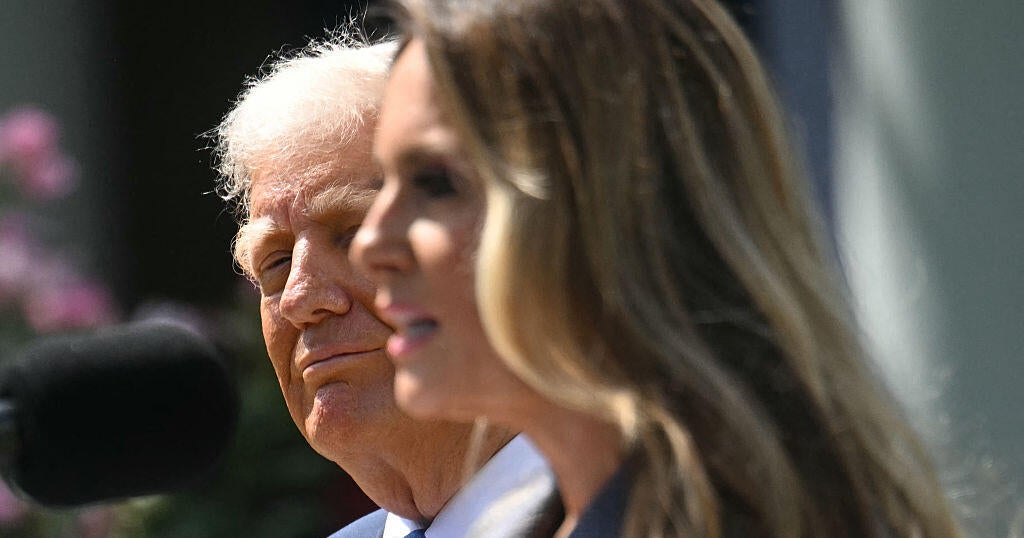
Trump signs “Take it Down Act,” revenge porn bill backed by Melania Trump
Washington — President Trump on Monday signed a bipartisan bill into law that makes it a federal crime to post real and fake sexually explicit imagery online of people without their consent.
The bill, known as the “Take It Down Act,” was backed by first lady Melania Trump, who made a rare public appearance in March at the U.S. Capitol to advocate for the bill’s passage in the House. The bill cleared the lower chamber last month after the Senate passed the measure in February.
“This will be the first-ever federal law to combat the distribution of explicit, imagery posted without subjects’ consent,” Mr. Trump said during a bill signing event at the White House. “We will not tolerate online sexual exploitation.”
The law requires social media companies and other websites to remove images and videos, including deepfakes generated by artificial intelligence, within 48 hours after a victim’s request. Those convicted of intentionally distributing explicit images without a subject’s consent face prison time.
“It’s heartbreaking to witness young teens, especially girls, grappling with the overwhelming challenges posed by malicious online content like deep fakes,” the first lady said in March. “This toxic environment can be severely damaging.”
The first lady attended Monday’s bill signing, calling the law a “national victory that will help parents and families protect children from online exploitation.” She thanked the bipartisan group of lawmakers who worked on the legislation “for coming together to prioritize people over politics.”
“Artificial intelligence and social media are the digital candy for the next generation — sweet, addictive and engineered to have an impact on the cognitive development of our children,” she said, adding that “these new technologies can be weaponized, shape beliefs and, sadly, affect emotions and even be deadly.”
After Mr. Trump signed the bill into law, he handed it to his wife to also sign.
Meta, which owns Facebook and Instagram, as well as TikTok and Snapchat have all said they support the legislation.
Digital rights groups, however, have warned that the legislation as written could lead to the suppression of lawful speech, including legitimate pornography, and does not contain protections against bad-faith takedown requests.